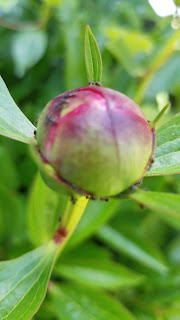Ongoing Ant Problem? Effective Solutions to End Persistent Ant Infestations
If you are dealing with an ongoing ant problem in your home or business, you are not alone. Ants are one of the most common pests in many households, and a persistent infestation can be frustrating. Ants Exterminators explore the best strategies for eliminating an ongoing ant problem and provide recommendations to ensure these tiny intruders don’t return.
Why an Ongoing Ant Problem Requires Professional Solutions
When dealing with an ongoing ant problem, it’s essential to understand why DIY solutions often fall short. While you may see some initial relief, ants are persistent and adaptable creatures. If you’re facing an ongoing ant problem, professional help is typically required to effectively address the situation and prevent future infestations.
Ant Colonies Are Complex
An ant infestation is rarely just a surface issue. Ant colonies can have multiple nests, often hidden in walls, under floors, or within insulation. Professional exterminators are trained to locate and treat all potential ant colonies, ensuring that your ongoing ant problem is fully eradicated.Expert Knowledge of Ant Behavior
Ants are highly organized and work in colonies, making them difficult to get rid of without expert intervention. A trained exterminator knows the habits and behaviors of different ant species, allowing them to target the source of the infestation effectively. This specialized knowledge ensures that the treatments used are both effective and long-lasting.Effective, Targeted Treatment Plans
Unlike store-bought traps or sprays, professional pest control services offer customized treatment plans based on your unique situation. Experts assess the infestation, identify entry points, and apply solutions that tackle the root cause of your ongoing ant problem, which ensures a more permanent solution.
Top Strategies for Dealing with an Ongoing Ant Problem
To put an end to an ongoing ant problem, the right approach is essential. Here are some of the best strategies for addressing persistent ant infestations effectively:
Comprehensive Property Inspection
A detailed property inspection is the first step to solving an ongoing ant problem. Pest control professionals will inspect your home or business for signs of ant activity, identify potential nesting sites, and pinpoint where ants are entering the property. This thorough evaluation allows for the development of a customized treatment plan.Targeted Extermination Methods
Professionals use advanced techniques, including baiting systems, sprays, and dusts, to target the colony and eliminate the ants at all stages of their lifecycle. These methods ensure that ants do not just return after a few days.Preventive Measures
Once the active infestation is eliminated, it's important to implement preventive measures. Professionals will seal off cracks, gaps, and other access points to prevent ants from entering your property in the future. Additionally, pest control experts can advise you on keeping your property ant-free by reducing food and moisture sources that attract ants.Ongoing Monitoring and Follow-Up Services
A key part of dealing with an ongoing ant problem is consistent monitoring. Many pest control companies offer follow-up services to monitor the situation after treatment, ensuring that no new ant colonies emerge. Regular inspections and treatments can help you avoid future ant infestations.
Why You Shouldn’t Ignore an Ongoing Ant Problem
Ignoring an ongoing ant problem can lead to bigger issues. Ants, while small, can cause significant damage to property, contaminate food, and potentially introduce diseases. In fact, some species of ants, like carpenter ants, can damage wood and structural components of your property. Moreover, if left untreated, ants can create multiple colonies that expand throughout your property, making the infestation even more difficult to control.
In conclusion, if you're experiencing an ongoing ant problem, it’s essential to act quickly. Professional pest control services provide the expertise, tools, and strategies needed to eliminate ants once and for all. By investing in expert solutions and taking preventive measures, you can ensure that your home or business remains ant-free in the long term.
Pest control service

















No comments:
Post a Comment